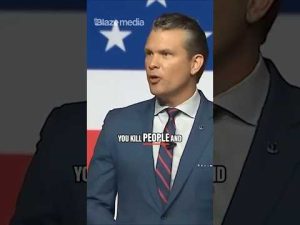In today’s political landscape, it seems like heated rhetoric and public takedowns have become par for the course. Unfortunately, this has led to rising tensions and a growing distance between different sides of the ideological spectrum. One would hope for more compassion and understanding, especially during difficult times, but there are instances where individuals resort to harsh words without considering the broader impact. This behavior is evident in recent discussions surrounding a conservative figure, where a commentator took the opportunity to label him as a “hater,” even in the wake of his passing.
The failure to heed the call for respectful discourse is concerning. It is undeniable that love and acceptance are powerful forces that can unite people. However, to suggest that an opposing view is purely fueled by hatred is a disservice not only to the person in question but to all who shared his ideals. It’s crucial to differentiate between disagreeing with someone’s political opinions and demeaning their entire life’s work with unfounded claims of hate-mongering.
Commentators like Ta-Nehisi, whose recent comments have caught public attention, overlook the impact their words have on grieving families and communities. It’s not just about free speech or making public points; it’s about understanding the time, place, and context. Criticizing someone shortly after their passing, and when their loved ones are still mourning, demonstrates a lack of empathy and respect.
Moreover, broad-brushing an individual’s contributions by reducing them to a single negative characteristic might boost engagement and gain attention online, but it does a significant disservice to healthy political discourse. If the goal is to advance meaningful conversations about ideologies and differences, then it’s imperative to engage with facts and not conjecture. Those who knew this individual personally have come forward to defend his character and highlight the positive influence he had on their lives, refuting the simplistic label of “hater.”
In a world increasingly driven by digital conversations, where anyone can broadcast a message to millions, there is a vital need for responsibility and consideration in public speech. When misconceptions are spread and amplified, they not only damage reputations but also deepen divisions. It’s high time to recognize that impactful commentary should strive to build bridges rather than burn them. Drawing nuanced distinctions, respecting the legacy of individuals, and prioritizing compassion over criticism should be the hallmarks of true leadership in today’s complex political arena.







